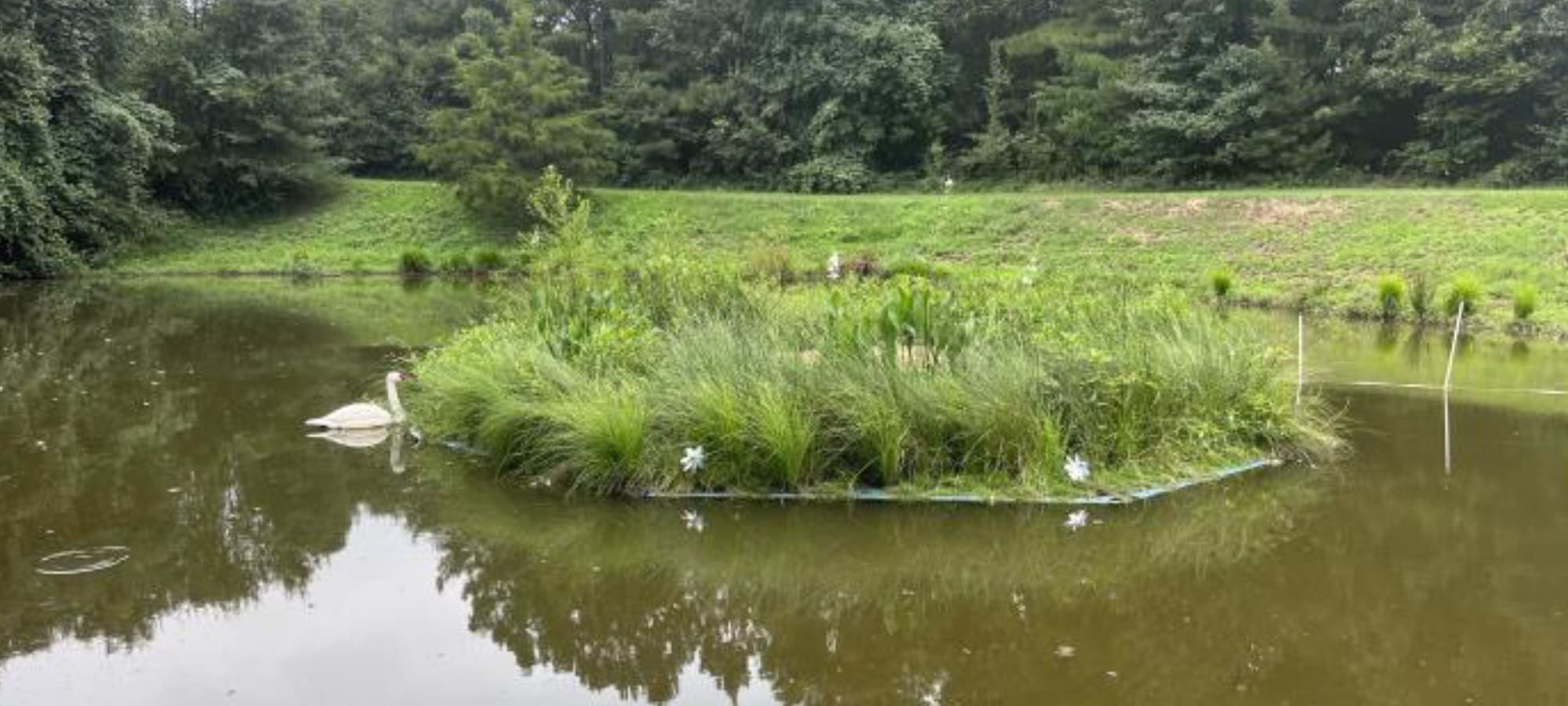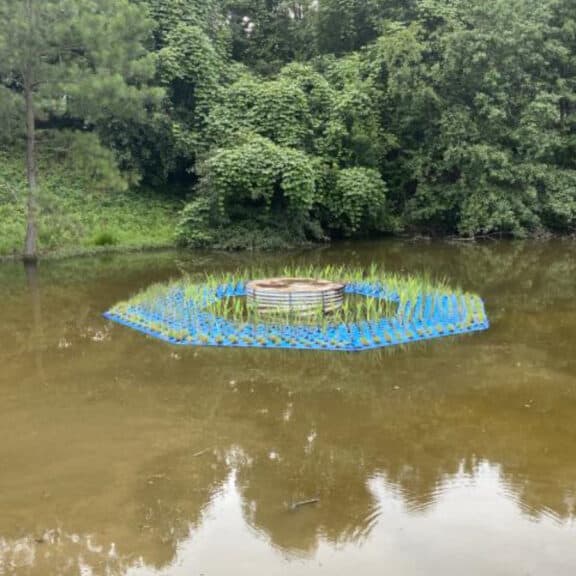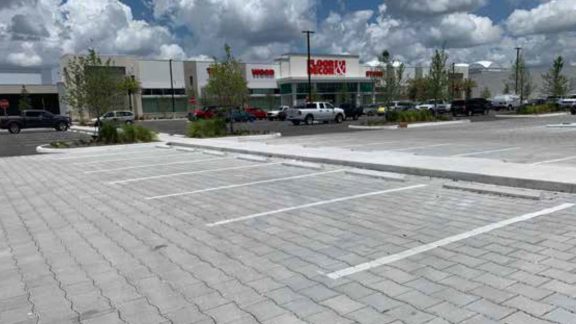Floating Wetland Reduces Algae Blooms in Raleigh, NC
A student at NC State University studies the impact of strategically placing Beemats Floating Wetlands to reduce algae blooms and excess nutrients


Challenge
A student from NC State University conducted a research study and chose Armory Pond in Raleigh as a test location. This location was one of three involved in the study. It was selected because of its excess of bioavailable nutrients and persistent algae blooms. Both of which promoted the growth of invasive plant species in the pond.
The goal of the study was to observe the efficacy of floating treatment wetlands. Specifically, the student wanted to determine how the strategic placement of Beemats at the inflows and outflows could improve the storage and removal of phosphorus and nitrogen within the body of water.
Solution
To assist the study, NC State student reached out to Ferguson Waterworks. Together, we installed a floating Beemat island around the outflow structure in order to target nutrients as they left the pond. After 365 days of monitoring the structure and water, valuable data was collected.
The floating island was successful in taking up excess nutrients. In conclusion, this placement helped reduce algae blooms.
Product Advantages
Beemats float on top of the water and work to remove both nitrogen and phosphorous. This is accomplished as a result of its unique design which involves the use of patented pots. Their versatile design allows for the harvesting of plant materials as well as the replacement of individual plants if necessary.
Key benefits of Beemats floating wetlands:
- Sequesters excess bioavailable nutrients in the water column.
- Competes with invasive species by vegetating it with native plants.
- Available for both new construction and retrofits.
- Periodic maintenance ensures the success of the project.
- Includes reports showing the removed nutrients.
View Similiar Case Studies
In order to revitalize and meet stormwater codes, the abandoned parking area at the Shoppes at Fashion Square in Orlando, FL, required updates. With a permeable paving system and machine technology, we helped the client achieve their goals, save $1 million, and complete the project in just 10 days.
With solar panels in place and operational, an immediate and effective erosion control solution was imperative. Especially considering the panels were positioned next to channels, drip lines, and spillways.
After failed attempts to stabilize the earth at the Mt. Jackson Solar Farm, they required an immediate, cost-effective erosion control solution. Ferguson Waterworks was brought on board to address their ongoing concerns.



